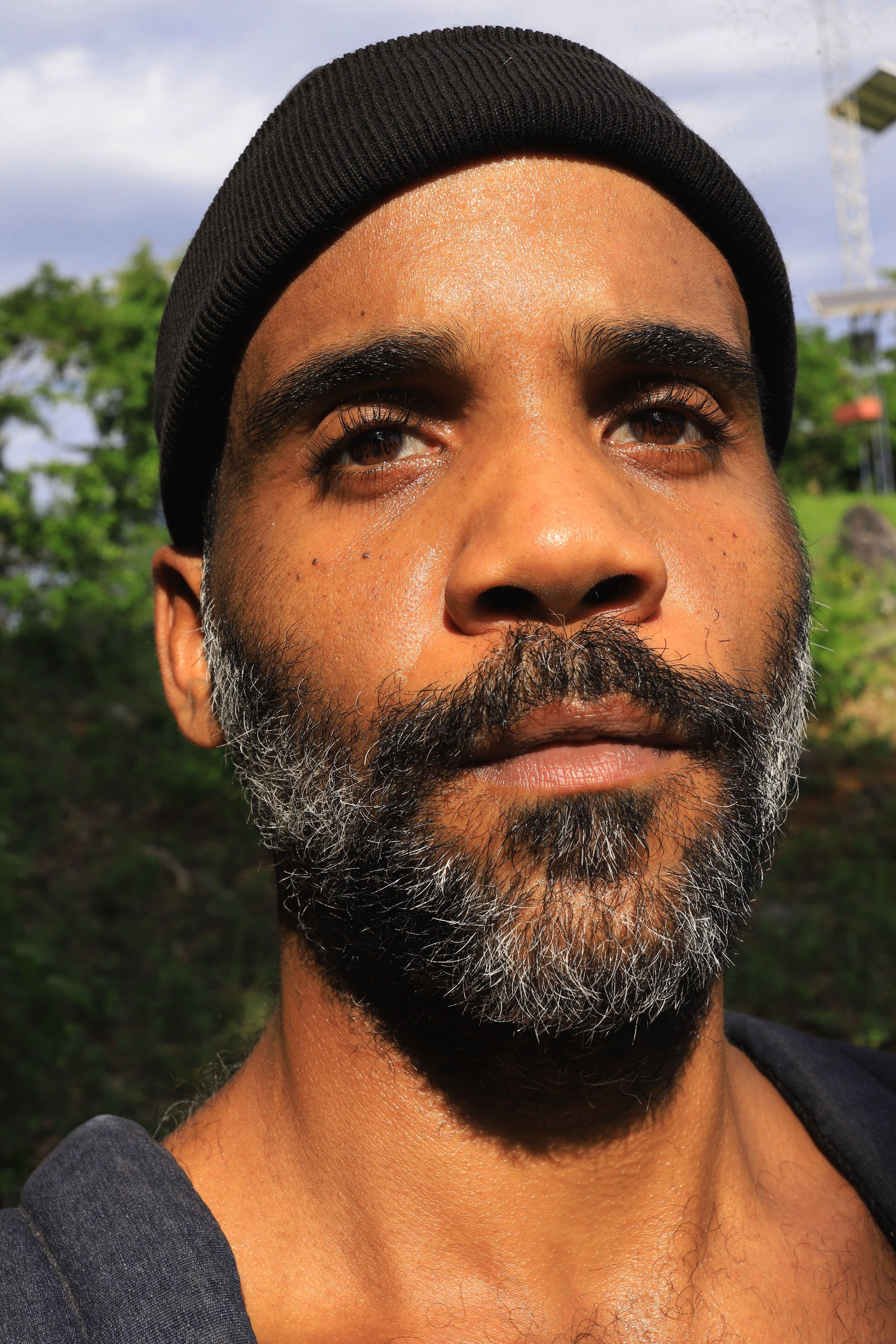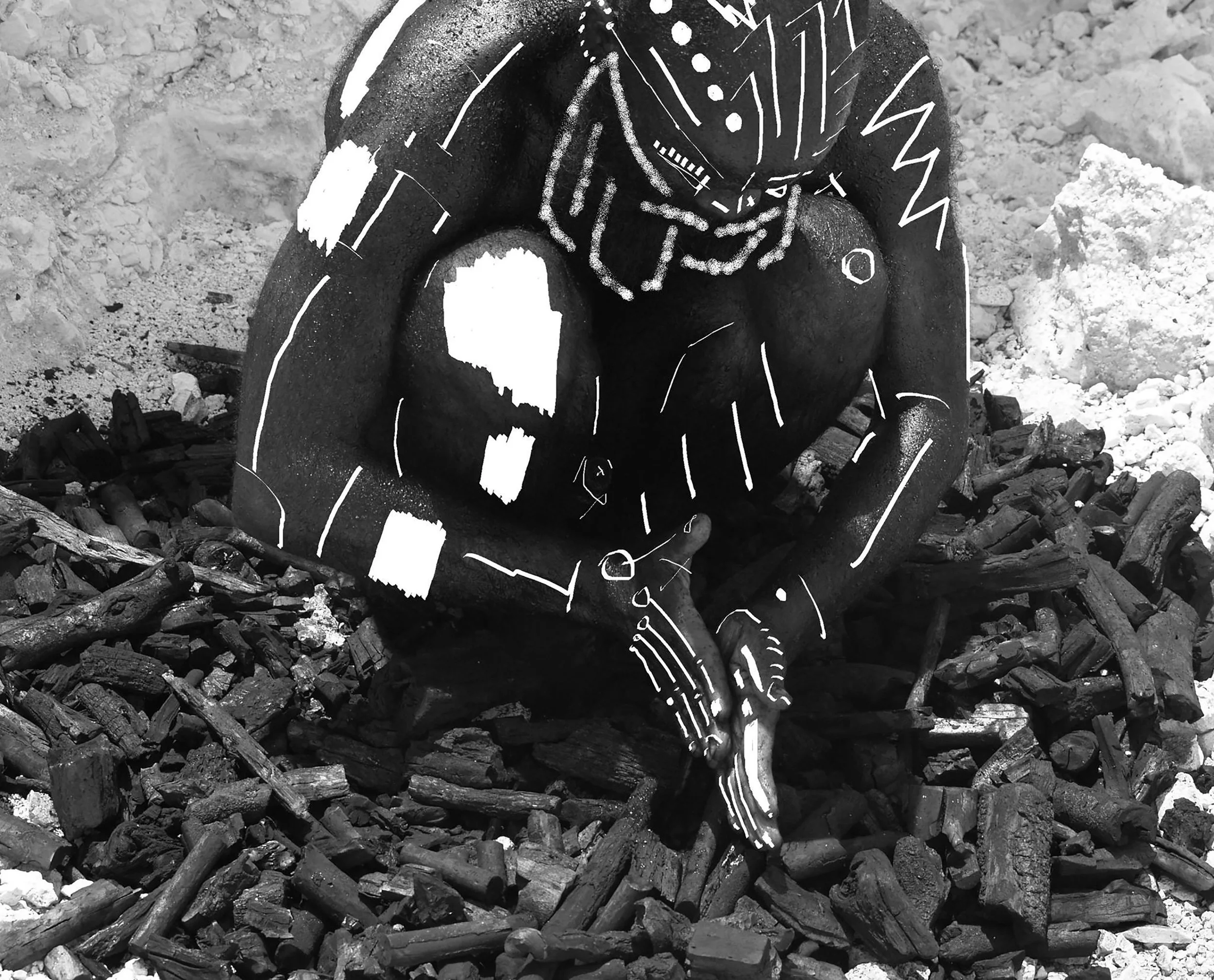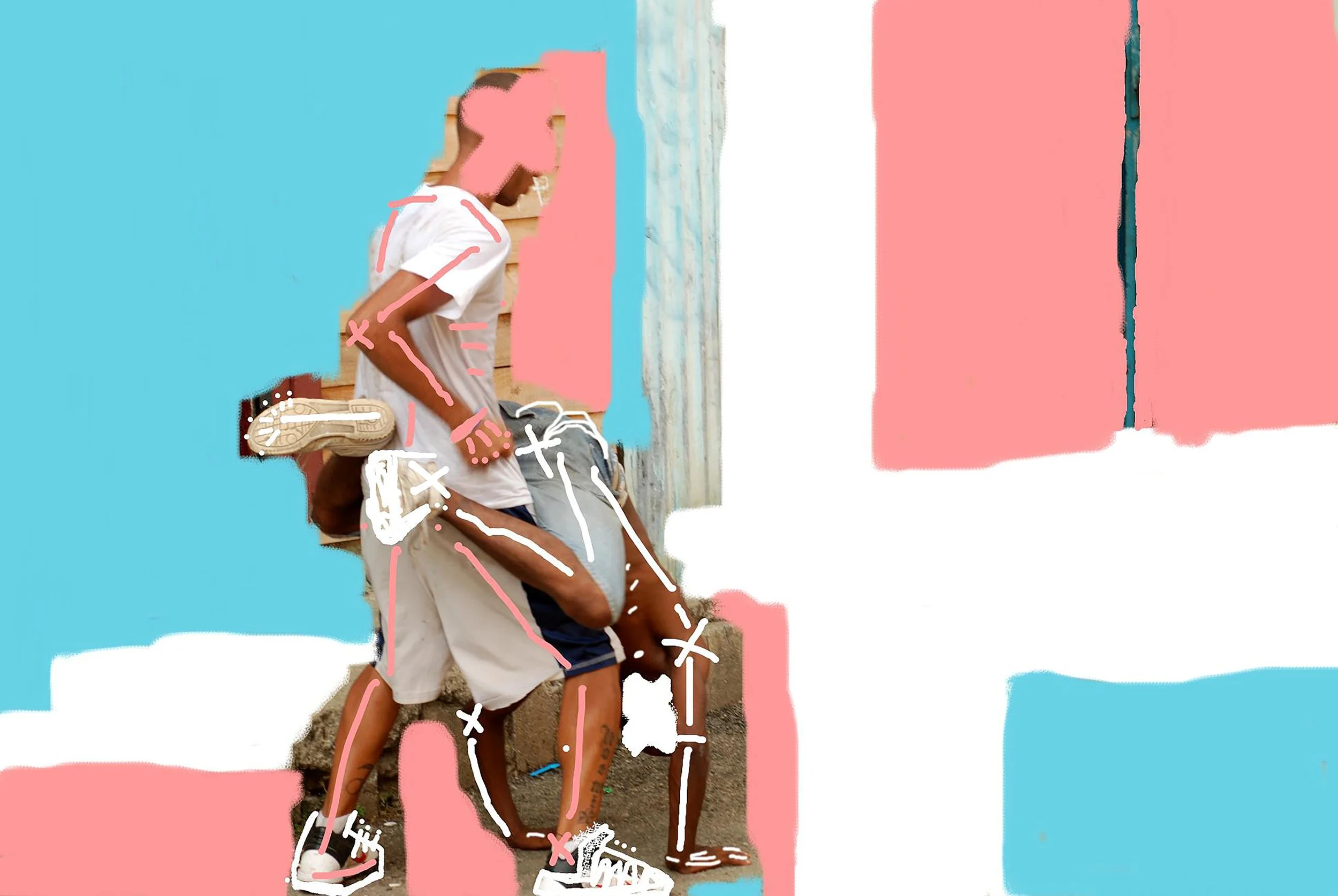Eliazar Ortiz (Dominican Republic, 1981)
Eliazar Ortiz.
Ortiz studied civil engineering at the Universidad Nacional Pedro Henríquez Ureña, Santo Domingo, but his interest in art led him to rethink his profession. He moved to Argentina to study photography at Escuela Argentina de Fotografía, Buenos Aires, a city where he held his first exhibitions, participating in the city's underground art movements through feminist and LGBTQI collectives. His early works deal with the human body and language, a recurring theme throughout his career. Upon his return to the Dominican Republic, Ortiz participated in the XXVII Biennial of Visual Arts of Santo Domingo where he received an honorable mention. That same year he won the young image award with the video installation Unx mismx, an award that he was awarded consecutively with the photographic installation Karakashi Wall, which propelled him to his first solo show in the country Post Dembow Tempo.
In 2015, Ortiz settled in Las Terrenas and began working with materials from the environment, marking an incorporation of environmental concerns into his work. In 2017, he traveled to Spain to participate in the VII Encuentro de Artistas Novos in the Cidade da Cultura de Santiago de Compostela and the following year he participated in the 27th Eduardo León Jimenes Contest with the photographic installation Ellxs, Nosotrxs y Todxs, where he reflected on masculinity, which won him a residency at the Museo Memorial Acte de Guadalupe. This residence marked a turning point in his work, because through the memories preserved by this museum from enslaved peoples, Ortiz began to understand and investigate the origin of many current phenomena in relation to gender identity and violence, inequality, the control of bodies, and the colonial transformation and utilization of land. That same year he was selected to participate in the Ghetto Biennale in Port-au-Prince with a performance in memory of the revolution that abolished slavery. In 2020 he was invited by Juan Canela to participate in Zona Maco Sur in CDMX. In 2021, he won a scholarship awarded from the Caribbean Cultural Institute (CCI), the curatorial and research platform of the Pérez Art Museum Miami (PAMM).
Tree Kollection
Eliazar Ortiz (Dominican Republic, b. 1981)
Guary Kreyol, 2020.
Oil and bixa seed, jagua dye, turmeric, hibiscus petals and ink on Arches paper
H 83 x W 51 inch
Image courtesy of the artist
Eliazar Ortiz (Dominican Republic, b. 1981)
Detail from Guary Kreyol, 2020.
Oil and bixa seed, jagua dye, turmeric, hibiscus petals and ink on Arches paper
H 83 x W 51 inch
Image courtesy of the artist
Eliazar Ortiz (Dominican Republic, b. 1981)
La coronación de Ana María, 2020
Delonix regia petals, hibiscus, berry bugs and black bean leaf dyes, guava bark, coffee, jiquilite, avocado and annatto seed, ink on paper
H 26 x W 26 inch.
Image courtesy of the artist
Karakashi primitivo
Eliazar Ortiz (Dominican Republic, b. 1981)
Karakashi Primitivo I, 2015
Digital Photograph
H 16 x W 22 inch.
Images courtesy of the artist
Eliazar Ortiz (Dominican Republic, b. 1981)
Karakashi Primitivo III, 2015
Digital Photograph
H 16 x W 22 inch.
Images courtesy of the artist
Dembow
Eliazar Ortiz (Dominican Republic, b. 1981)
Dembow X, 2012
Digital photograph
H 16 x W 24 inch.
Images courtesy of the artist
Eliazar Ortiz (Dominican Republic, b. 1981)
Dembow XIV, 2012
Digital photograph
H 16 x W 24 inch.
Images courtesy of the artist
Eliazar Ortiz (Dominican Republic, b. 1981)
Dembow XVII, 2012
Digital photograph
H 16 x W 24 inch.
Images courtesy of the artist










